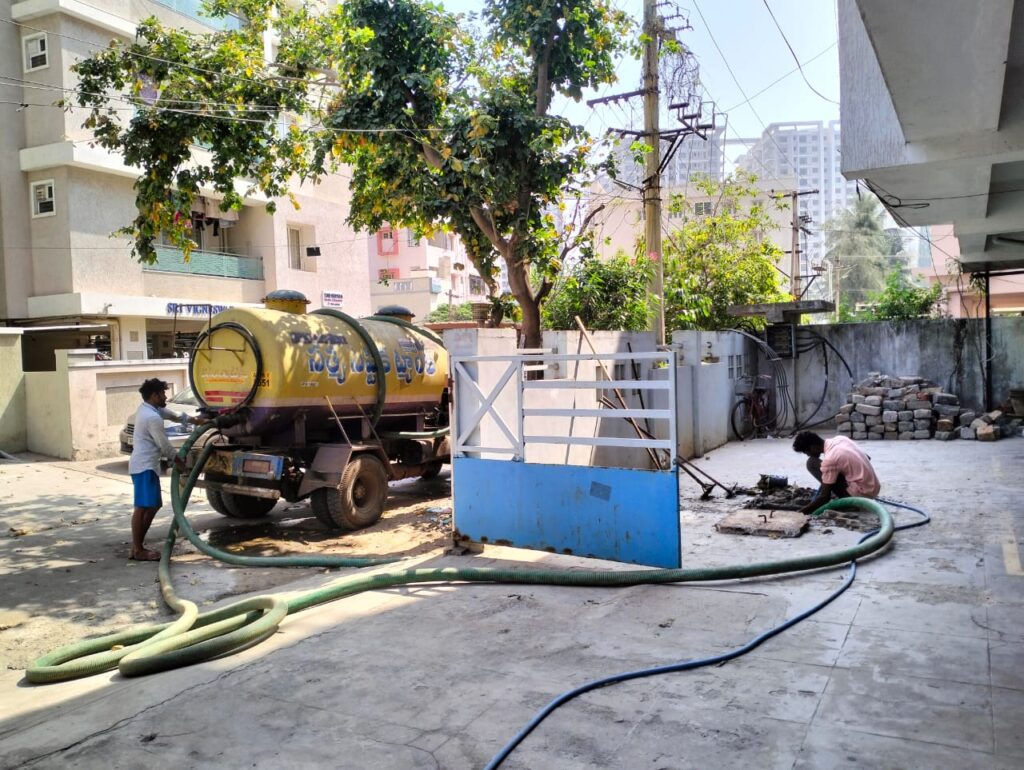
Introduction to Septic Tank Cleaners
Understanding the Function of a Septic Tank Cleaners
Septic Tank Cleaners play a crucial role in wastewater treatment for homes that are not connected to a municipal sewer system. These underground chambers collect and decompose sewage, allowing the liquid to flow into the drain field while retaining the solid waste.
Importance of Regular Maintenance
Regular maintenance of your septic tank is essential to prevent costly repairs and ensure the longevity of your system. Neglecting maintenance can lead to clogs, leaks, and system failure, resulting in unpleasant odors and environmental contamination.
Common Signs of a Clogged Septic Tank
It’s important to be aware of signs that indicate your septic tank may be clogged. These include slow drains, gurgling noises, sewage backups, and foul odors in and around your home.

Types of Septic Tank Cleaners
Chemical Cleaners vs. Natural Cleaners
When it comes to septic tank cleaners, you have a choice between chemical and natural options. Chemical cleaners can be effective at breaking down waste but may contain harsh ingredients that can harm the beneficial bacteria in your tank. Natural cleaners, on the other hand, are gentler on the system and can promote a healthy balance of bacteria.
Enzyme-Based Cleaners
Enzyme-based cleaners are a popular choice for maintaining septic tanks. These cleaners contain enzymes that break down organic waste, helping to prevent clogs and keep your system running smoothly.
Bacterial Additives
Bacterial additives introduce beneficial bacteria into your septic tank, aiding in the decomposition of waste. These additives can help maintain a healthy bacterial balance in your tank and improve its overall efficiency.

How to Choose the Right Septic Tank Cleaner
Considering Tank Size and Usage
When selecting a septic tank cleaner, consider the size of your tank and the number of occupants in your home. Larger tanks may require more frequent cleaning, while smaller tanks may need a lighter touch.
Reading Labels and Ingredients
Be sure to read the labels and ingredients of septic tank cleaners carefully. Avoid products that contain harsh chemicals or additives that could disrupt the natural balance of bacteria in your tank.
User Reviews and Recommendations
Seek out user reviews and recommendations when choosing a septic tank cleaner. Real-life experiences can offer valuable insights into the effectiveness of different products.
## Tips for Using Septic Tank Cleaners Effectively
Dos and Don’ts of Septic Tank Cleaning
* Do follow the manufacturer’s instructions for dosage and frequency.
* Do not flush harmful substances like grease, chemicals, or non-biodegradable items down the drain.
Frequency of Cleaning
* Regularly clean your septic tank according to the manufacturer’s recommendations to prevent clogs and maintain efficiency.
* Consult a professional if you experience persistent issues with your system.
Troubleshooting Common Issues
* Address minor issues promptly to prevent them from escalating into major problems.
* If you encounter major issues with your septic tank, seek professional assistance to avoid further damage.
## Maintenance and Care of Septic Tank System
Regular Inspections and Pumping
* Schedule regular inspections and pumping to keep your septic tank in optimal condition.
* Professionals recommend pumping your tank every 3-5 years, depending on usage.
Proper Disposal of Household Waste
* Avoid flushing non-biodegradable items, chemicals, or excessive amounts of water down the drain.
* Practice water conservation to reduce the strain on your septic system.
Preventative Measures to Avoid Clogs
* Install drain traps, use toilet paper that is septic-safe, and avoid pouring grease or oil down the drain.
* Be mindful of what you flush and dispose of in your septic system to prevent clogs.
## Conclusion
Recap of Key Points
Maintaining a clean and efficient septic tank is crucial for the health of your system and the environment. By choosing the right septic tank cleaner, following proper maintenance practices, and staying vigilant for common issues, you can keep your system running smoothly for years to come.
Importance of Regular Maintenance
Regular maintenance is key to the longevity and efficiency of your septic tank system. By investing time and effort into proper care, you can avoid costly repairs and ensure the continued functionality of your system.
Final Thoughts on Keeping Your Septic Tank Running Smoothly
Taking care of your septic tank is a responsibility that pays off in the long run. By following the tips outlined in this guide, you can maintain a clean, healthy system that benefits both your home and the environment.

## FAQs
1. How often should I clean my septic tank?
* Septic tanks should be pumped every 3-5 years, depending on usage and tank size.
2. Are enzyme-based cleaners safe for septic systems?
* Yes, enzyme-based cleaners are safe and can promote the natural breakdown of waste in your septic tank.
3. Can I use homemade remedies to clean my septic tank effectively?
* While some homemade remedies may be safe, it’s best to use commercially available septic tank cleaners that are specifically formulated for the task.
Remember, a little effort in maintaining your septic tank can go a long way in preventing major issues down the line. Happy cleaning!
